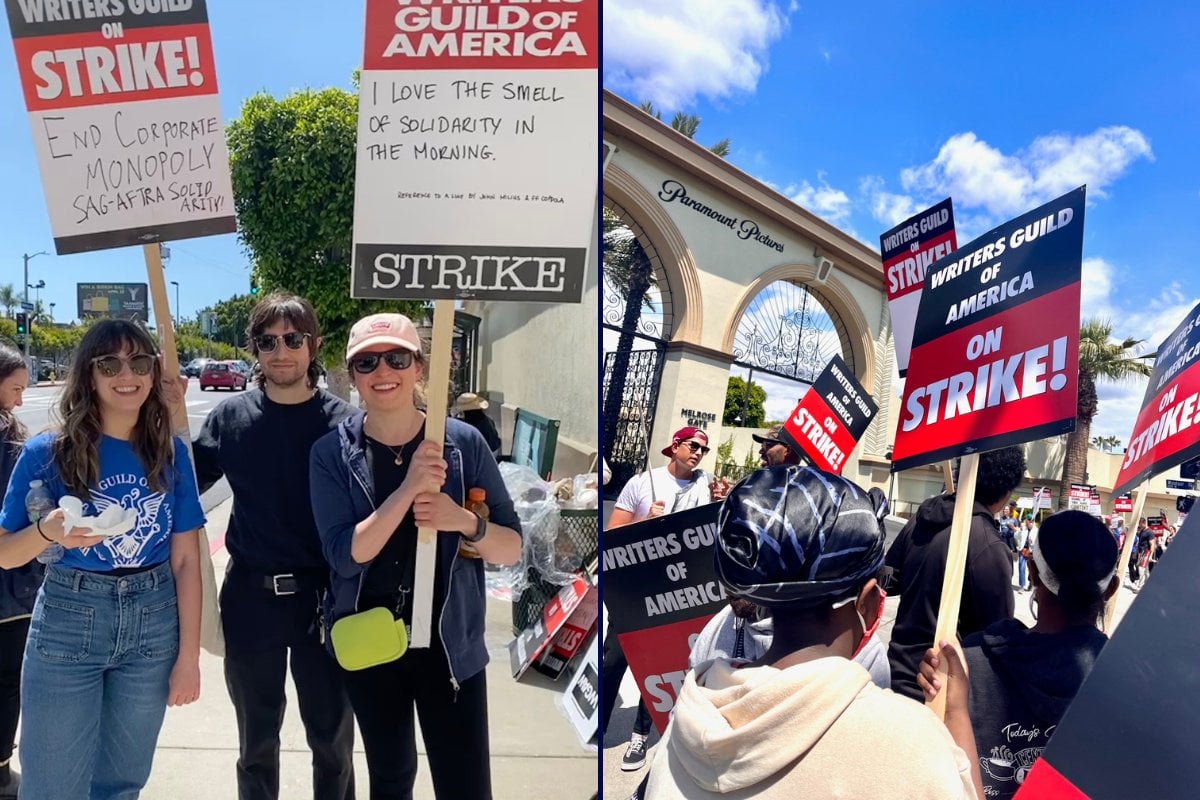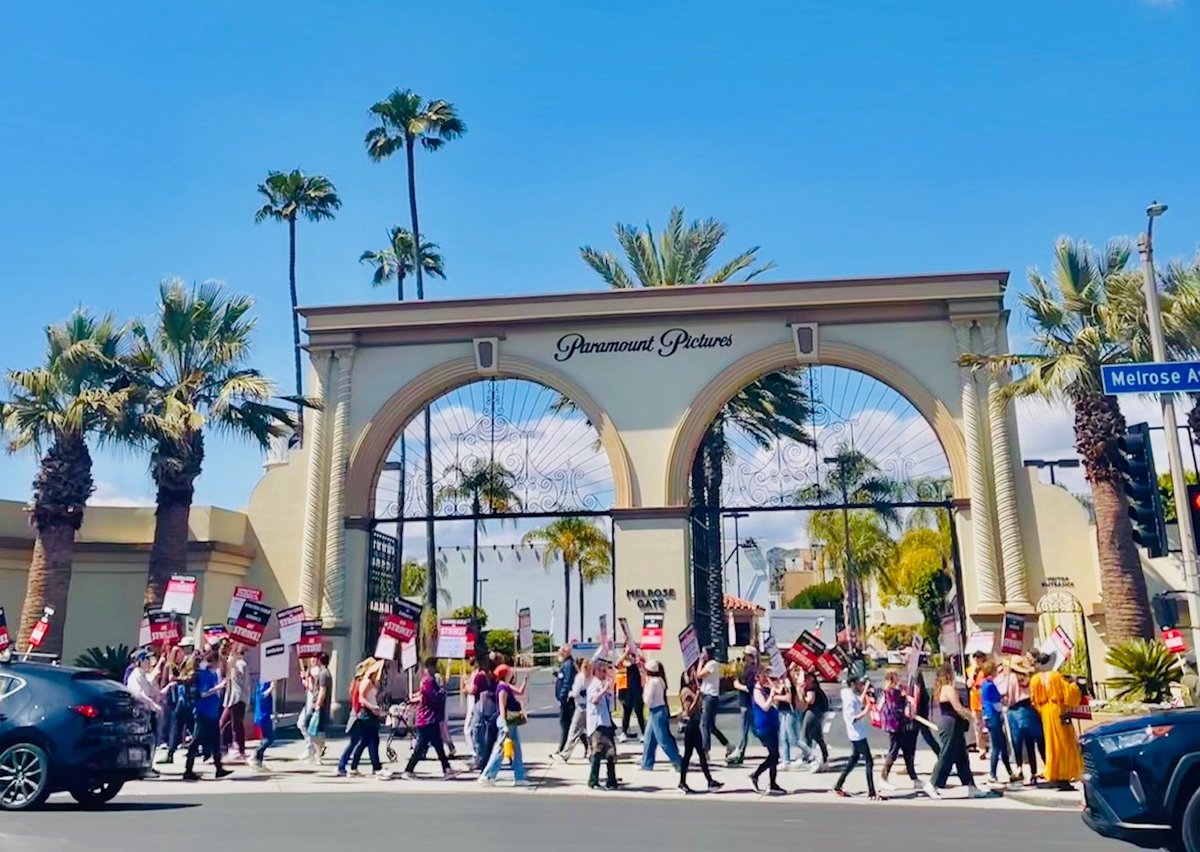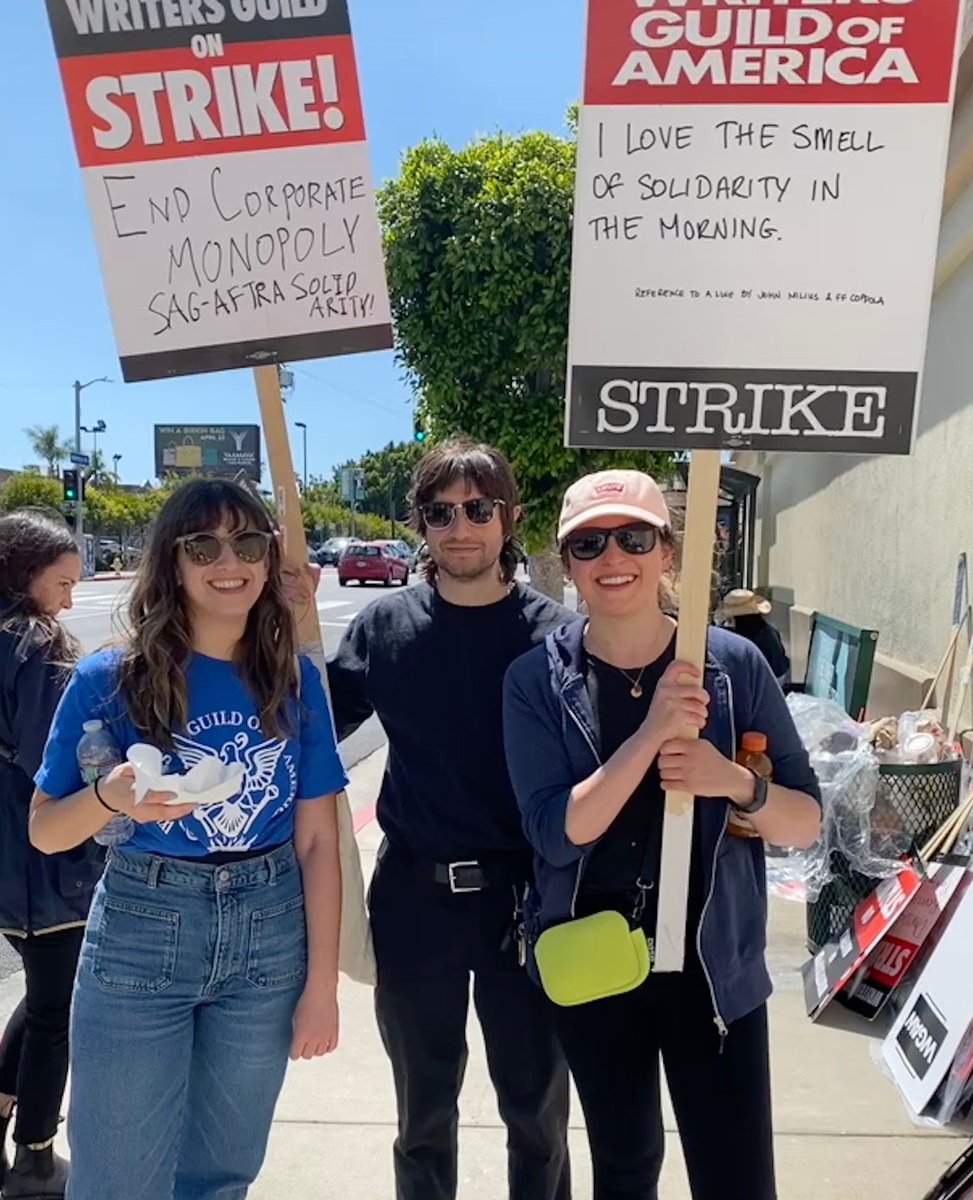
I wrote a movie that became a successful streaming film. Instead of receiving a cut of the profits - standard if it had been released in theatres - the studio sent me a meat and cheese gift basket. Unfortunately, my landlord does not accept Camembert as a rent payment.
This is one of the reasons why the 11,500 members of The Writers Guild of America, myself included, went on strike last week. The rise of streaming brought the tech industry to Hollywood, and with that came the desire to transform our profession into a gig economy. They’ve denied us residuals on streaming movies - and in TV you can look forward to cheques for three cents. They've cut traditional writers rooms and created ‘mini-rooms’ in their wake, which result in writers doing more work in less time, for less money. And they’re bursting to use AI. All while studios make record profits, and studio heads rake in multi-million dollar salaries.
Watch the thousands of writers at the picket lines. Post continues below.
I moved from Sydney to LA as the streaming era began, and the shift has been undeniable. Fundamentals of contracts that would give me a semblance of financial stability have been eliminated, forcing me to do extensive free work in order to progress to the next round or find new projects, while the lack of residuals on streaming mean I lose an entire avenue of income. This has always been a difficult career to break into, but now they’re making it impossible to stay.


